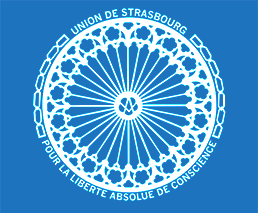Globalization, International Conflicts, Their Impacts Profane And Masonic
The current social phenomenon of globalization has many facets. It could be compared to a synthetic crystal gem which, although less precious than a natural diamond, seems to have the same ability to capture light as a real diamond, returning it to the observer through captivating flashes of variable intensity. The two gems, the real one and the synthetic one, can look similar, if not even identical. However, over time the synthetic gem, unlike the real one, loses its brightness and transparency.
Thus, the current model of globalization does not seem to shine with the inner light that is generated by the aspiration for social peace, deriving from a desire for collective freedom and brotherhood between peoples and countries, but with a dim light generated by economic and financial conditions of powerful oligopolies, favoured by a rampant loss of values and moral sense. In this distorted scale of values, human rights and the interests of the majority take second place to the interests of the few.
If we analyse the main economic, social and political aspects of the current phenomenon of globalization according to the Masonic way of interpreting reality, we can immediately notice a fundamental flaw: the lack of shared rules for managing such a complex system. The first rule should be based on “equality”, a fundamental and unifying element of the trinomial that has inspired adogmatic and liberal Freemasonry for over two centuries.
The just claim of individual nations to have the same rights to participate equally in the globalization project should be supported by the guarantee that specific duties and obligations are respected. The latter can essentially be reduced to three: the first is the recognition of the dignity of every person, regardless of country of origin, gender and religion; the second is the commitment to adopt shared rules inspired by the fundamental moral principles of every free and democratic society, in line with national laws and the indications of the most prominent international organizations; the third is the full application of trade union rights which safeguard the dignity, freedom and safety of those who work both to produce and to distribute the fruit of their labour within the “global market”.
Instead, the opening of the markets took place only after a simple “declaration of intents” and vague commitments undertaken for the protection of the environment and for the application of international laws and regulations.
The indications aimed at widening the customs barriers were applied in a hurry, thus allowing unfair commercial practices, aimed at conquering important markets, and favouring financial speculations that risk altering the right balance among markets, to the detriment of savers and small investors.
The liberalization of international trade has only favoured the expanding economies and created dangerous commercial concentrations which, through the modern communication channels, have regulated the market according to their exclusive interests.
The visible lack of shared ethical rules has favoured the “outsourcing” of flourishing Western industries which, because of short-sighted strategies aimed at the reduction of production costs, have sold their precious know–how to unfair competitors who persist in trampling on basic human rights.
Thus, the dream of an equal confrontation between different cultures and of a simplification of goods transport systems to guarantee the quality and convenience of the products, has vanished. The “global market” has rather turned into a commercial battlefield where sly billionaires, favoured by a privileged taxation, and authoritarian nations have imposed their rules.
The strengthening of the interdependence between peoples different in history, geographical location, religion, life habits and traditions, should have constituted, in the intentions of the supporters of globalization, the basis for establishing a “new” society, less tied to selfish and nationalistic canons of the past and more inclined to tear down walls, abolish borders and overcome those obstacles which in the recent past had given rise to local and global conflicts.
The “new” society, for the most optimistic, would have become that “perfect place” desired by the “dreamers” of every age, i.e. enlightened intellectuals, high religious representatives and great personalities who claim to be inspired by a universal and supportive vision of the relationships between the human beings.
According to this optimistic vision, wars would have disappeared, economic synergies would have created wealth for everyone, the sharing of solutions to solve environmental problems would have preserved the planet from decay, open confrontation between cultures would have been the driving force for sharing a common ethic founded on the principles of liberal democracy and respect for the rights of the citizens.
Unfortunately, the gap between the general happy expectations and the dramatic reality of the facts is rapidly widening, creating a state of chronic dissatisfaction, fear for the future and gloomy resignation in the peoples involved in this epochal change.
Conflicts are spreading everywhere, even in the heart of Europe, under the pressure of imperialist ambitions carried out by insatiable autocrats or driven by a blind religious fury. Neo-utopian tendencies that support the so-called “happy degrowth” based on the erasure of the past are spreading and blame the West for having favoured a scientific and technological progress considered too advanced to be “sustainable”.
Today’s picture looks bleak. Ukraine has been invaded by Russia, paying an high cost of innocent victims and suffering the permanent threat of the use of nuclear weapons.
Democratic Taiwan, the last liberal enclave of the Chinese people, lives in fear of waiting for an announced invasion.
Afghanistan and Iran suffer the shame of bloody persecutions by intolerant and absolutist theocracies who arrest and sentence to death intellectuals, women and homosexuals.
The Middle East is torn apart by the eternal armed confrontation between the extremists of the Arab world and the State of Israel.
In Africa just a few nations are governed by democratic regimes and are immune from antihistorical tribal wars.
In Myanmar a military dictatorship massacres supporters of democracy and imprisons a Nobel Prize winner.
North Korea is ruled by a despotic and paranoid dynasty.
In South America, some peoples still live under totalitarian governments.
Added to this bleak picture of conflict is the imminent danger of a misuse of scientific and technological progress in the social and economic fields.
Rather than generating good fruit, this epochal change risks swallowing the light of social progress, economic growth, and traditional values.
Slowly and inexorably, the distribution of wealth has favoured the enrichment of a few, the impoverishment of the middle class, the disappearance of small trade and crafts, the growing resignation of the younger generations.
With these premises, the middle class, on the verge of extinction, will be increasingly attracted by those who will become bearers of a nationalist and protectionist conservatism, opposed to any form of internationalism, and based on the primordial instinct of “saving what can be saved”.
Freemasonry, like other institutions inspired by universal values and ancient initiatory traditions that believe in the spirituality of Man, is suffering the harmful consequences of the crisis just described. Liberal and dogmatic Freemasonry suffers the attacks of the “single thought” (“pensée unique” in French) imposed by those who want to close Freemasonry in the “ghetto of the past” to make its natural propensity for innovation and progress ineffective.
The Masonic communities are suffering from an evident decrease in their attractive power over the new generations and from an increasingly reduced attention of their followers to ethical and moral values.
Today’s young people see Freemasons as a group of elderly businessmen who wear funny aprons and perform macabre and ancient rites.
It is a superficial evaluation of course, supported by those who fear the civil commitment of Freemasons, free people historically protagonists of the greatest social changes of the last centuries.
Unfortunately, this negative opinion is justified by the behaviour of those Freemasons, thanks God a minority, who fear to renew and to grow intellectually and are unable to adapt the ancient rites to the modern times and to carry out the work of proselytism in the best possible way.
In fact, if Freemasons give up the role of “people who try to perfect themselves to contribute to the improvement of the society in which they operate” it is a waste of time to support the existence of this centuries-old institution in this third millennium.
If Freemasons do not believe in the opportunity to engage themselves in an epochal battle, they risk finding themselves in the forest of Utopia, along with catastrophists, nihilists, self-styled ecologists, flat earthers and deniers of all kinds, all united in the illusion of transforming the world into a wonderful place where everyone is equal, where only the little needed to survive is used, where money is banned, and where the promises of wild globalization – that is well-being, freedom and happiness – can finally come true.
Such a “perfect” place will probably never exist on Earth. Without renouncing our innate desire to pursue the dream of “perfection” we must admit that humanity is composed of imperfect beings who live in an imperfect world with little hope of future perfectibility.
If you project yourself into a utopian dimension, you need to ask yourself a question: is it acceptable for a man or a woman to limit their free will and delegate their life choices to others in favour of a presumed social justice and presumed well-being of the planet?
Freemasons cannot be utopians: behind every utopian dream lies the nightmare of illiberality and tyranny.
We Freemasons are (and must remain) “crusaders of Freedom”, inflexible enemies of utopia, avid defenders of liberal democracy. We will pay a high price for this indispensable choice. We will have to fight and survive in a clumsily “globalized” society polluted by permanent conflicts.
The millennium that has just begun risks representing the ideal scenario in which the Grand Inquisitor, envisaged by Dostoyevsky, could act as the sole and definitive Guarantor of the enslavement of the individual in the name of “collective happiness”.
A prophetic Aldous Huxley makes a character of his 1932’s masterpiece “Brave New World” speak as follows: “Today utopias appear more feasible than once believed…Life marches towards utopias. Perhaps a new century shall begin: a century in which intellectuals and the educated class will think of the means to avoid utopias and return to a non-utopian, less “perfect” but freer society“.
If a Freemason finds himself in front of a crossroads where two opposing arrows stand out – on one is written “promise to achieve perfection” and on the other “certainty of fighting for freedom” – he should, without hesitation, choose the second direction.
He will have to do so by arming himself with patience and tolerance never renouncing the indispensable determination to defend the freedom of the individual and of peoples.
If, on the other hand, he chose the first, sooner or later he would fall into the “black hole” of homogenisation and enslavement to the leaders of the moment.
A “globalized” society, without clear rules, devoid of ethics and illiberal, would only lead humanity to new catastrophes and in a state of perennial conflict.
The dream of walking towards “perfection” would then definitely vanish. For everyone.
(P.S. – May 2023)

 IT
IT


